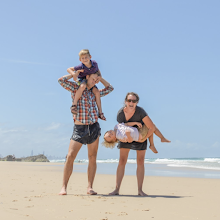How to Teach Self-Discipline Instead of Just Discipline
I've been a progressive educator my entire life, despite the fact that I've spent many years working in schools that were far from progressive. At the first school I worked at in rural Louisiana, the principal kept a paddle on her wall and used it to beat the children.
Through it all, I've struggled to find an approach to discipline that is simultaneously progressive and specific. As someone who has always worked in schools with high numbers of children who are impacted by poverty, I need lots of tools and strategies.
I've read Positive Discipline, Love and Logic, Assertive Discipline, and Responsive Classroom, but nothing was as comprehensive and helpful as the new methodology I stumbled upon: Conscious Discipline.
It includes so many compelling ideas and components, such as:
- "Discipline isn't something you do to children; it's something you develop within them."--Dr. Becky Bailey
- It's important to create a school family that helps children feel safe and connected. To create safety and predictability, we need clear and consistent routines. To create connection, we need rituals and structures that help children feel loved and give them authentic opportunities to practice self-regulation and kindness.
- Before we respond to discipline issues, we need to monitor our own brain states and make sure we are not in our safety brains (feeling threatened and incompetent) or in the feeling part of our brain (feeling annoyed). We have to use self-regulation (like breathing) to get ourselves back into our the executive thinking part of our brain.
- Once we are in the executive thinking part of our brain, we need to see misbehavior as an expression of an unmet need or an undeveloped skill. Then we have to coach the child to understand how to meet their needs or how to learn a new skill.
It's so simple and yet so revolutionary. I'm so glad I'm learning more tools and strategies!













3 comments:
I really like Becky Bailey! I also love Dr. Ross Greene and his system called Collaborative & Proactive Solutions, formerly called Collaborative Problem Solving. He wrote "The Explosive Child" (for families) and "Lost at School" (for educators/administrators). His main premise is children will "do good if they can" and if they can't it's because of an "unsolved problem or lagging skill". SO, you work on collaboratively problem solving and teaching lagging skills INSTEAD OF hyper-focusing on motivating through rewards and punishments - they won't work if the problem is still there or the skill just isn't developed yet! I crazy, crazy, CRAZY love this! And it's totally complementary to Conscious Discipline, yipppee!
He was recently profiled in Mother Jones http://www.motherjones.com/politics/2015/05/schools-behavior-discipline-collaborative-proactive-solutions-ross-greene
In the spirit of Conscious Discipline and Collaborative and Proactive Solutions, I think you'll like this specific advice on teaching self-calming skills... kind of random but I love that it gets beyond telling a kid to "calm down" - duh, but help them learn HOW! Love it! http://www.specialeducationadvisor.com/teaching-self-calming-skills/
This is so interesting. When I was reading it, I couldn't help but think about the ramifications of the safety brain and the emotional brain that are playing out with the issue of policing. Such a different topic, yet I found this framework really interesting to think about in that context.
Post a Comment